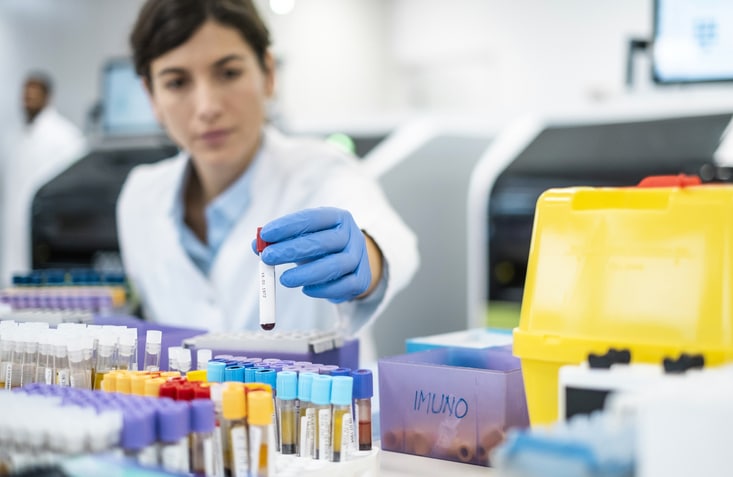Women have long sought to understand the hormonal changes that accompany menopause and the years leading up to it, known as perimenopause, from irregular periods and brain fog to the well-known hot flashes.
But recognizing when menopause begins and when these life-changing symptoms may come to an end presents a unique challenge for every woman approaching middle age.
“A lot of patients ask me about doing tests to see if they are perimenopausal or menopausal,” says Heather Havener, MD, MSCP, OB-GYN and Menopause Society Certified Practitioner on the medical staff at Methodist Mansfield Medical Center. “There really isn’t a test that tells us where you’re at in that journey because hormones fluctuate all the time.
Menopause is when a woman has gone a full year without a period. That’s a simple definition for a complex transition that is different for every woman.
“It’s not a one-size-fits-all situation,” Dr. Havener says. “We can all have different symptoms, different timing of onset, and different duration depending on how long the symptoms may last.”

WHEN THE CHANGE BEGINS
Perimenopause takes place before menopause begins, when many women first notice changes, even though they’re still having periods.
“Perimenopause is the change in hormones that happens before menopause begins,” explains Christine McCrae, PA-C, MSCP, a physician assistant and and Menopause Society Certified Practitioner at Methodist Family Health Center – Murphy. “That drop in estrogen is what starts many of the changes women feel.”
This is often when women first experience hot flashes, night sweats, weight gain, mood swings, irritability, or brain fog. Perimenopause can start earlier than many expect, sometimes as early as the mid-to-late 30s.
It can also bring symptoms women don’t always associate with hormones, such as dizziness, dry or itchy skin, decreased libido, vaginal dryness, painful intercourse, and urinary incontinence.
“It’s those things women aren’t so willing to talk about,” McRae says, “but things that we do experience and should not ignore.”

DON’T RELY ON LABWORK
There’s a common misconception that a blood test or other lab work can reliably predict when a woman’s journey toward menopause begins.
“When I was in medical school 25 years ago, we were taught if a woman has normal labs and she’s still having periods, there’s no way she’s having symptoms,” Dr. Havener says. “Now, we know that’s not necessarily the case.”
Both McRae and Dr. Havener say women should trust what their bodies are telling them, rather than relying on tests that may not tell the whole story.
“If you’re in perimenopause, your labs are going to be normal, and then you’re going to feel defeated and feel like you’re making this up,” Dr. Havener says.
They also recommend seeking another provider in cases where a primary care doctor may not have the time or expertise to hear the whole story.
“The Menopause Society has a database with physicians who are certified menopause practitioners,” says Dr. Havener, who has earned that certification, just like McRae. “You should be able to find help if your doctor is not comfortable with it.”
From routine checkups to advanced gynecological surgery, Methodist has the services women need at every stage of life. Learn more at MethodistHealthSystem.org
START OF MENOPAUSE
Menopause begins once a woman has gone 12 consecutive months without a period. For some women, the symptoms from perimenopause continue, while others notice new ones.
“It’s average for most women to have hot flashes, sleepless nights, or weight gain,” McCrae says. “So many of my patients come to me and think they’re going crazy. They’ve had their hormones checked and it looks normal, but you can’t determine menopause based on hormone levels alone.”
This is because hormones can fluctuate significantly during menopause. A hormone blood test provides a snapshot of the day rather than the period a woman is in. While hormone panels can appear “normal,” symptoms often tell the real story and, in some cases, what looks like perimenopause or menopause may actually be pregnancy.
“Although ovulation tends to be sporadic, you are still ovulating,” Dr. Havener explains. “I’ve had patients come in thinking they’re in perimenopause because they haven’t had a period, but a pregnancy test shows otherwise.”

Other conditions, such as polycystic ovarian syndrome (PCOS) or even a hysterectomy, make it challenging to know exactly where a woman is in her menopause journey. That’s why it’s important to work with a provider to sort through symptoms and history.
Every woman going through menopause wonders when her symptoms will end. The answer differs for everyone.
“We used to think that symptoms of menopause only lasted between two and five years.” Dr. Havener says. “We now know that up to 50% of women have some symptoms that last the rest of their lives.”
Despite that reality, there are many options for relief, from hormone therapy to weight-loss drugs and nonhormonal treatments. There’s no need to suffer in silence.

CHANGING MINDSET
Despite the stigma surrounding menopause, more women are beginning to speak openly about it and encourage others to do the same.
Celebrities including Oprah Winfrey, Gwyneth Paltrow, and Halle Berry, as well as former First Lady Michelle Obama, have helped normalize the conversation by sharing their own experiences.
“I’m glad more women are speaking out because we are no longer our mother’s generation or our grandmother’s generation,” McCrae says. “We are a new generation, and we are going to change what this means moving forward.”
Modern medicine also offers more options than ever to help manage the symptoms of menopause to benefit women’s long-term health.
For many women, this stage is a long and complex one, but by listening to their bodies and finding a healthcare provider who understands their needs, the journey could be made smoother.
“Please don’t be afraid to bring this up to your provider,” says Dr. Havener. “We are here to help you, now is the time to be open with us.”






